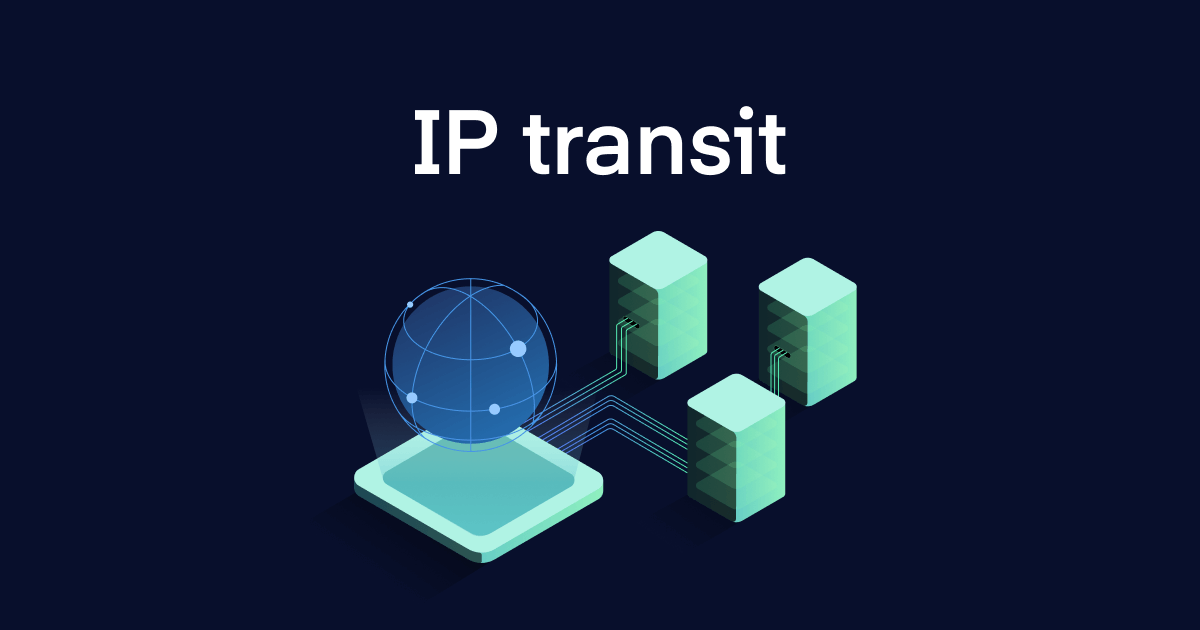In the constantly evolving landscape of connectivity to the internet, companies both large and small depend on IP transit to give seamless access to the digital world. From enabling cloud services to powering online shopping platforms, IP transit serves as the basis of modern communications networks. We will explore the basic concepts of IP transport, along with the functions and roles of IP providers.
IP transit is also called internet transit. It allows traffic from networks (also known as “traffic”) to traverse or “transit”, a network. Users are then able to connect to the wider internet. This connectivity is facilitated by IP transit providers, companies that own and operate the infrastructure necessary to transmit data packets between networks. These companies play a vital function in ensuring reliable, efficient internet connectivity for both businesses and users alike.

Companies have plenty of options in the field of IP Transit services. Some providers provide basic transit options that permit access to the internet without any customization or additional features. Others offer more advanced services such as managed IP Transit, which offers monitoring, additional support, and security features. The type of service chosen depends on the needs and requirements of your business.
Pricing is one of the most important factors for businesses when choosing a service provider. Prices for IP transit may differ substantially based upon factors like bandwidth requirements, geographic location, and service level agreements. Understanding the pricing structures, cost models and levels of service provided by different providers can help companies make educated decisions.
In addition to the cost companies should also take into consideration the reliability and performance of the IP transit service provider. Carrier grade networks that have backbone connectivity of 100G and 400G offer the reliability, scalability and security required for mission-critical services and applications. Automating all processes from beginning to finish enhances efficiency, and offers seamless user experience.
IP-Access is a scalable and customizable solution for businesses that are looking to streamline the network’s connectivity. This connectivity option is ideal for businesses that have older installations or unique requirements. Businesses can tailor their connectivity with features such as IPv4/31 or IPv6/127. standard transfer networks.
IP-Access offers basic DDoS protection for large-scale attacks in conjunction with its Internet access. This adds an extra layer of security and protection for business networks. This protection will help guard against loss of revenue as well as downtime due to cyber threats.
Inter.link Portal is a simple and convenient way for businesses of all sizes to access IP Transit service. Businesses can set up IP Transit in just minutes in just a few clicks. The user can choose their preferred locations, bandwidth needs ports speed, and contract duration. This makes the process easier and helps save time and resources. Companies can now focus on their core business.
IP Transit is essential to the modern internet. It allows companies to connect to each other, and also collaborate with other businesses across the globe. Knowing the fundamentals of IP Transit, the role of IP Transit providers, their wide range of services, and the way they determine their pricing and costs will allow businesses to make informed choices. They are also able to ensure that they are connected to thrive in the digital world of today. IP Transit is the core of modern communications networks, whether for accessing cloud-based services, powering platforms like ecommerce, or connecting offices across the world.
